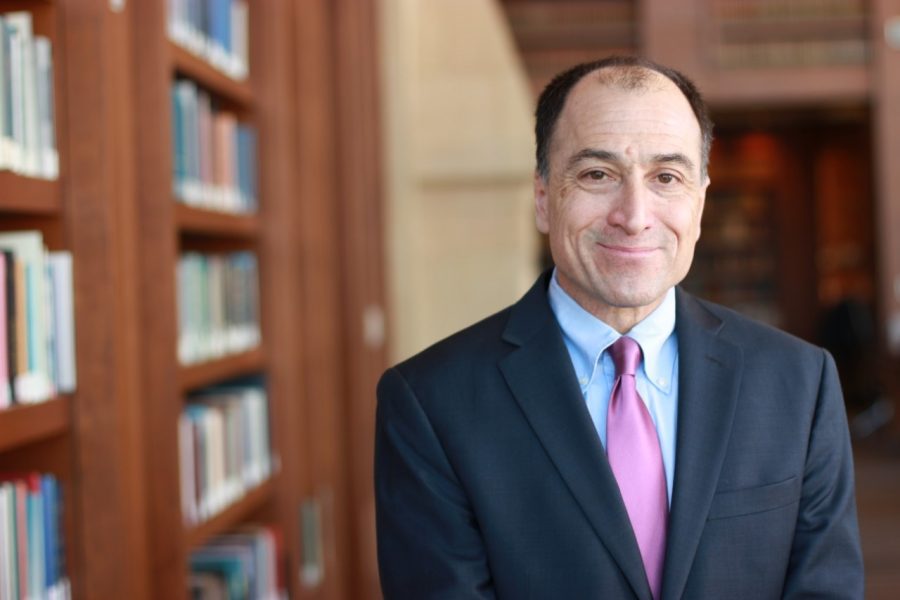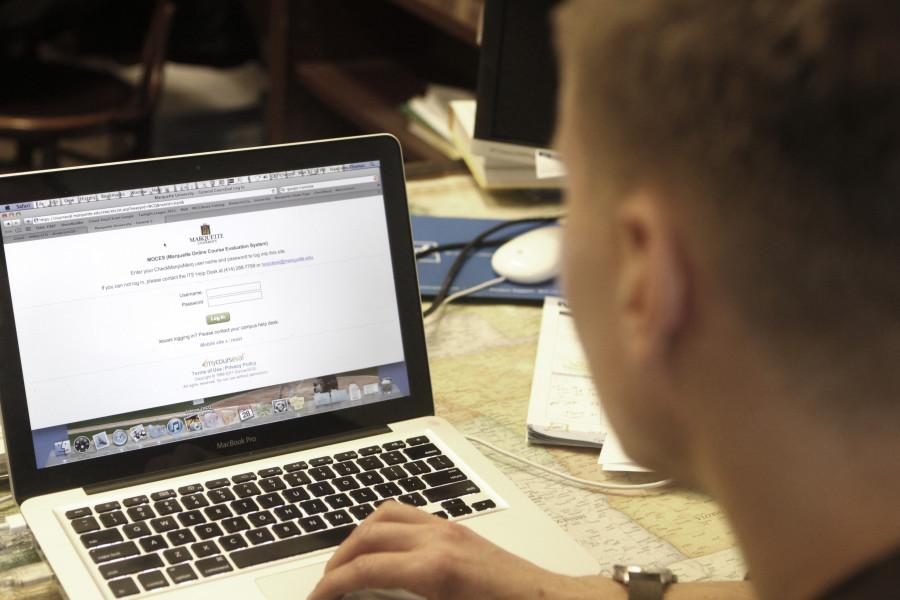
A “woman’s place” was once the home, where working as a full-time wife and mother paid to fulfill social norms. However, setting the dinner table and caring for children has become a story of the past as more women pursue salaried jobs in the workplace.
Female enrollment at Marquette University is further proof of this shift in professions. The Centennial Celebration of Women reminds students constantly of Marquette’s achievement as the first Catholic co-educational institution worldwide.
Yet, it was only 11 years ago that gender discrimination was officially pointed out as a problem on campus, especially regarding the salary gap between male and female professors.
This salary gap can still be seen today.
According to the 2009-’10 American Association of University Professors Faculty Salary Survey, Marquette full-time male professors made $800 more than full-time female professors. Furthermore, male associate professors made an extra $5,100 and male assistant professors made an extra $8,000.
At first glance, these numbers scream sexism. Men making thousands of dollars more than women at the same institution: Eminent proof of the existence of gender bias, right? Not quite.
Past efforts: Task Force on Gender Equity
University President the Rev. Robert A. Wild formed the Task Force on Gender Equity in 1999 to investigate gender equality among Marquette faculty after concerns were brought to his attention by female faculty.
Twelve women and six men of various academic interests comprised the task force. The group was disbanded in 2000 and released its findings in a publicized report in 2001.
Task force members were able to obtain detailed salary information from the Office of the Provost for their investigation, but only on the condition that specific salaries not be shown in the final report, said Cheryl Maranto, chair of the management department in the College of Business Administration and a task force member.
This goes hand in hand with a private institution’s standard that Marquette define salary as a private and personal matter, according to Provost John Pauly. Due to university privacy policies, the Office of the Provost refused to release detailed salary data to the Tribune.
Nancy Snow, a professor of philosophy and member of the task force, said it was difficult to assess any quantitative improvement of this gap because of the Provost office’s refusal to disclose salary information.
Without revealing these values, Maranto said the report presented other salary variables such as seniority, number of published works or awarded research grants, and committee duties.
With these variables taken into account, the report said that in 2001 males had an average starting salary that was $1,800 more than females.
A private matter
At the time of hiring, Pauly said starting salaries are determined by the demand for the particular academic interests and qualifications of a candidate. Annual raises are then added to the base salary. If administrators see fit, extra money in department budgets could be used to “reward others” for commendable contributions to the college.
Administrators in the Office of the Provost, the dean of the college and the chair of the department determine professors’ salaries.
Pauly recalled three occasions during his time as dean of the College of Communication (2006-’08) when extra money from the department budget was used to equate the salaries between a male and female professor. Pauly said this was a rare occurrence overall, however.
Pauly has asked deans to take a closer look at salaries to ensure gender equity.
In addition, the same privacy standard the gender equity task force encountered exists today.
Pauly said Marquette employees expect salary information to remain confidential.
Pure discrimination or unintentional coincidence?
It is difficult to pinpoint a single reason for the salary gap, said Audrey June, a staff reporter for the Chronicle of Higher Education, which published the AAUP salary report.
June said researchers have found women sometimes work fewer hours than men due to maternal family responsibilities. These factors could also result in less research time and published work from female professors.
“Anecdotally, I’ve heard that sometimes women simply don’t ask for more money when they’re negotiating their salary packages.” June said. “And sometimes the gap can be attributed to plain old bias.”
Snow added that a bias could exist because men feel threatened by women in the workplace and don’t want to be seen as inferior.
John Cotton, a professor of management in the College of Business Administration who specializes in issues in the workplace, said men and women have tended to go down certain career paths, with men leaning toward higher paying careers.
“Instead of bringing up the pay issue, it’s bringing up: Why are they choosing different careers?” Cotton said.
Taking a look at data from the Office of Institutional Research and Assessment, it’s clear female professors do seem to migrate toward certain departments.
In 2009, OIRA reported female professors represented 16 percent of the College of Engineering and 27 percent of the College of Business Administration faculty. On the other hand, females represented 71 percent of the College of Education faculty.
Even within the College of Arts & Sciences, female faculty members were sparse in departments such as physics and political science, while they dominated social & cultural sciences and foreign languages & literatures.
To look at a university-wide average salary and claim gender bias wouldn’t be taking these academic specialties into account. Traditionally, college professors with certain academic interests, like engineering and business, are paid more than those in other disciplines, like English.
It would be necessary to examine specific salary data to quantify the magnitude of this difference at Marquette.
Trapped in the gap?
Posing this salary gap is not a simple accusation of raging sexism, but an overlying question of why the average female salary has generally been lower than that of males.
“It brings about the question, what is work really worth?” Pauly said.
Gary Levy, associate vice provost of OIRA, is responsible for statistical analysis of Marquette faculty salaries. Although attitudes about gender equity are changing, Levy said the salary gap has been decreasing very slowly.
Levy said gender is just another co-variable among many others to consider when analyzing Marquette faculty salaries.
For example, doctorate recipients are now opting for professional occupations before becoming university professors, shrinking the teaching field, Levy said.
“The notion of (gender) equity — which is very reasonable — is the assumption that everything else is equal, except being male or female,” Levy said. “And that’s a very uncommon occurrence.”
Marquette is no exception, with glaring gender inequities among some undergraduate majors.
This semester, OIRA reported female students make up 35 percent of the College of Business Administration and 21 percent of the College of Engineering. Yet female students make up 62 percent of the College of Communication and 77 percent of the College of Education.
Granted, Marquette has slightly more female students than male, but the data suggest female major preferences lie in potentially lower paying occupations.
Pauly and Levy agree this gap will close in the future.
Pauly said nine years ago, when the gender task force put out its report, the salary gap may have been caused by pure gender bias, but it’s becoming more of a “case-by-case issue” at Marquette.
The gender task force may re-form and evaluate more current salary data under the new president, Maranto said.
Until then, the best remedy to cleanse the workplace of past gender biases is time.
“Diversity is a journey, not a destination,” Maranto said.





